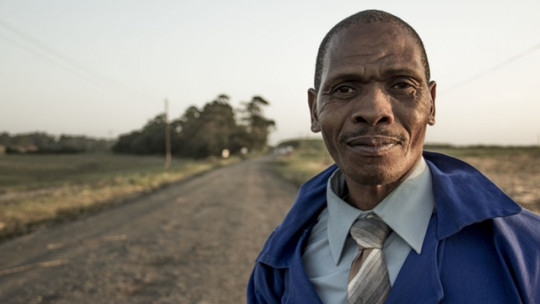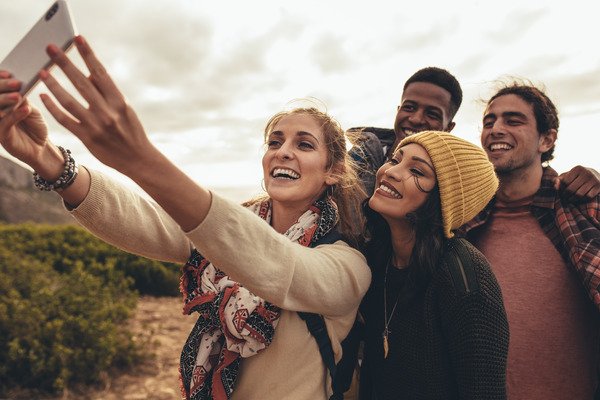Social relationships are extremely dynamic, and few threads are as valuable as sincere friendships. The ability to connect with others on a personal level not only enriches our lives, but helps us have feelings of belonging and external support. However, in our quest to build genuine connections, we often face a difficult to differentiate, but significant challenge: prejudice. Prejudices are preconceived ideas and ingrained attitudes can act as invisible veils that distort our perception of others and ultimately hinder our efforts to build true friendships. From the first impression to the deepest stages of a relationship, Prejudices can influence our decisions and limit our opportunities for friendship and relationships
In this article we are going to talk about the intricate web of prejudices and the way they impact our ability to make connections with other people that are authentic and based in reality. We will explore how these prejudices, often formed based on social stereotypes and past experiences, can bias our interpretation of the people we meet.
What are prejudices?
It is important to first define what prejudices are in order to deeply understand how they impact social interactions and limit you when it comes to wanting to build new relationships.
Prejudices have been defined as predetermined, predefined beliefs about a person, object, or situation. These beliefs may be true, but in most cases they are not, in addition to being very exaggerated and based on negative and exclusive ideas

Assumpting what a person is like based on perceptible characteristics, such as sex, race, nationality or sexual orientation, is something that usually happens unconsciously, but, as a general rule, it involves negative feelings and attitudes. This is explained due to socialization focused on the majority and most powerful categories of society. Thinking that these people represent the norm creates difficulty in understanding and respecting people who break or fight this rigid generalization and assumption of roles. Prejudices encourage the maintenance of people in predefined and closed categories, increasing their differentiation and exclusion.
Having prejudices can be normal and does not directly imply the exclusion of other people, but it is true that Maintaining very rigid beliefs about the people around us can limit us when it comes to wanting to talk and generate some type of relationship It is important to give yourself the opportunity to get to know people before labeling them in an overly defined way; I’m sure that most people have some feature that you didn’t expect and that surprises you.
The impact of prejudice on social interactions
Whatever they say, the first impression is a crucial moment in all interpersonal interactions, no matter how important it is. This is the moment in which our minds quickly evaluate someone based on visual and verbal cues and classify this person based on these signs. Therefore, when prejudices are present, this first impression can be completely distorted and lead to misunderstandings that affect our ability to make friends in an authentic way. Prejudices lead us to judge people before truly knowing them, classifying them into extremely rigid categories that do not correspond to reality. For example, if we have a negative prejudice toward a certain appearance or way of dressing, we may decide to overlook people who could have become significant to us if we had given them a fair chance.
Additionally, biases can influence how we interpret the actions and words of others. If we have a positive bias toward certain groups, we might be more likely to attribute good intentions to their actions, even when they are not justified. Likewise, negative biases can lead us to misinterpret neutral or positive actions as malicious intentions.
In the context of making friends, these biases can be especially damaging. By limiting our perception of people, we risk missing opportunities to make meaningful connections. Prejudices can restrict diversity in our social circle, keeping us within established comfort zones and limiting our experiences. It is important to recognize that we are all susceptible to bias at some level. However, by being aware of these tendencies, we can strive to overcome them and build relationships based on authenticity and mutual respect.
Closing opportunities when making friends from prejudice
Prejudice not only influences our initial perceptions and the formation of friendships, but it can also have a broader impact on our social life and personal growth. In this section, we are going to explore some of the negative consequences of maintaining prejudices when it comes to wanting to make friends.
1. They close doors
When we allow biases to guide our friendship choices, we risk losing valuable connections with diverse and enriching people. These prejudices can close doors to the diversity of experiences, opinions and perspectives that genuine friendships can provide. By keeping ourselves trapped in a limited circle of people who fit our stereotypes and expectations, we deprive ourselves of the opportunity to expand our horizons and learn from others.
2. They limit our personal growth
Additionally, prejudices can limit our own personal growth. By rejecting friendships based on prejudice, we miss the opportunity to challenge our own beliefs and points of view. Friendships that challenge us and expose us to new ways of thinking are the ones that contribute the most to our development as individuals.
3. They reinforce stereotypes
Prejudice can also reinforce stereotypes and divisions in society. When we perpetuate the idea that certain groups are “different” or “inferior,” we contribute to segregation and isolation. The formation of authentic friendships which transcend labels and stereotypes, is a powerful way to counteract these negative effects and promote inclusion.
Overcome prejudices and create friendships
Despite the challenges that prejudice can present in our social relationships, there is a path to overcoming these mental barriers and creating authentic and enriching friendships. Overcoming prejudices takes time and effort, but the result is worth it. By freeing ourselves from the chains of prejudice, we open the door to more authentic and nurturing friendships that can enrich our lives in unimaginable ways. Here are some practical strategies for identifying and overcoming bias, allowing us to cultivate genuine connections:
1. Self-awareness
The first step is to recognize that we all have prejudices on some level. Becoming aware of our own prejudiced tendencies is essential to addressing them effectively Through this technique we also put empathy into practice, seeking to understand other people and their realities.
2. Question beliefs
Reflect on your preconceived beliefs. Ask yourself why you believe what you believe about certain groups or individuals. Question whether those beliefs are based on solid evidence or stereotypes, and understand that the cause of these thoughts has more to do with you than with prejudged people. ###3. Empathy and openness Practice empathy by trying to understand the perspective of others. Listening carefully and being willing to learn from the experiences and points of view of others can break down prejudiced barriers and help you see each person’s individuality as valuable.
4. Education
Research and learn more about the cultures, histories and experiences of different groups. Education can help challenge stereotypes and broaden your horizons, seeking to deconstruct exclusionary prejudices for different people or groups. ###5. Diverse Exposure Seek opportunities to interact with people from different backgrounds and perspectives. The more experiences you have with diverse people, the harder it will be to sustain unfounded prejudices.
6. Constant self-assessment
Regularly review your interactions and relationships for potential biases. Ask yourself if you are judging someone unfairly because of deep-rooted biases It is very positive to question your relationships and the roles you play in them, taking into account your responsibility and role in terms of affection and bonding.
7. Celebrate individuality
Recognize and celebrate the diversity within each group. Each person is unique and should not be defined solely by their membership in a group. Everyone has something to offer, and just as you like to feel that other people care about you, many others experience the same feeling.
8. Learn from your mistakes
Recognize that it is possible to make mistakes in your quest to overcome prejudice. The important thing is to learn from them and move forward with a more open and conscious attitude Our way of relating to our environment is normally the result of trial and error.
Break these beliefs
In our search for authentic friendships, prejudices act as shadows that obscure opportunities. These preconceived judgments can limit our perception and hinder the formation of genuine connections. However, by recognizing and challenging these biases, we can open ourselves to enriching relationships. By celebrating individuality and practicing empathy, we create fertile ground for friendships that transcend stereotypes By breaking down these invisible barriers, we free ourselves to weave more authentic and meaningful relationships into the tapestry of our lives.









